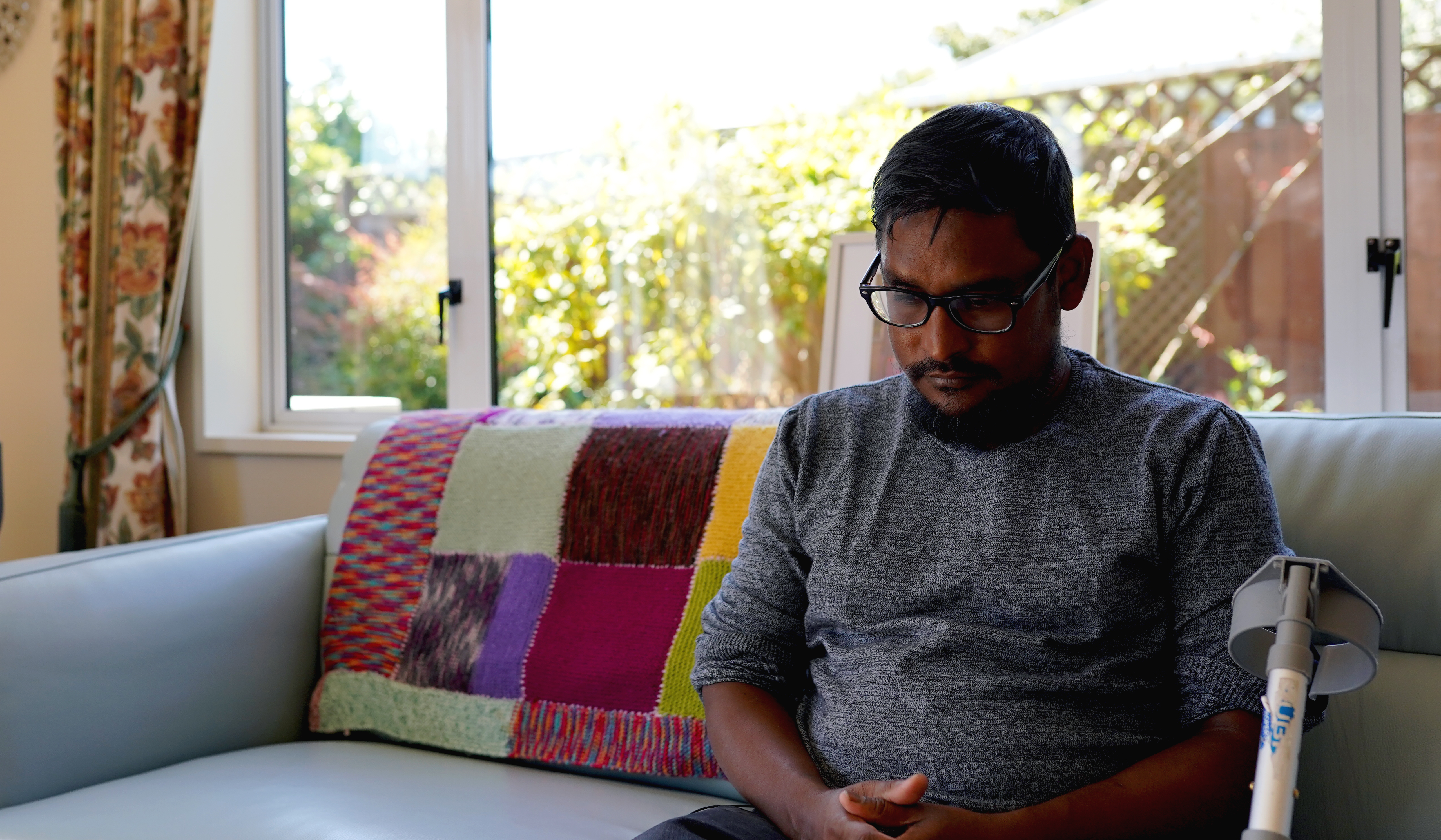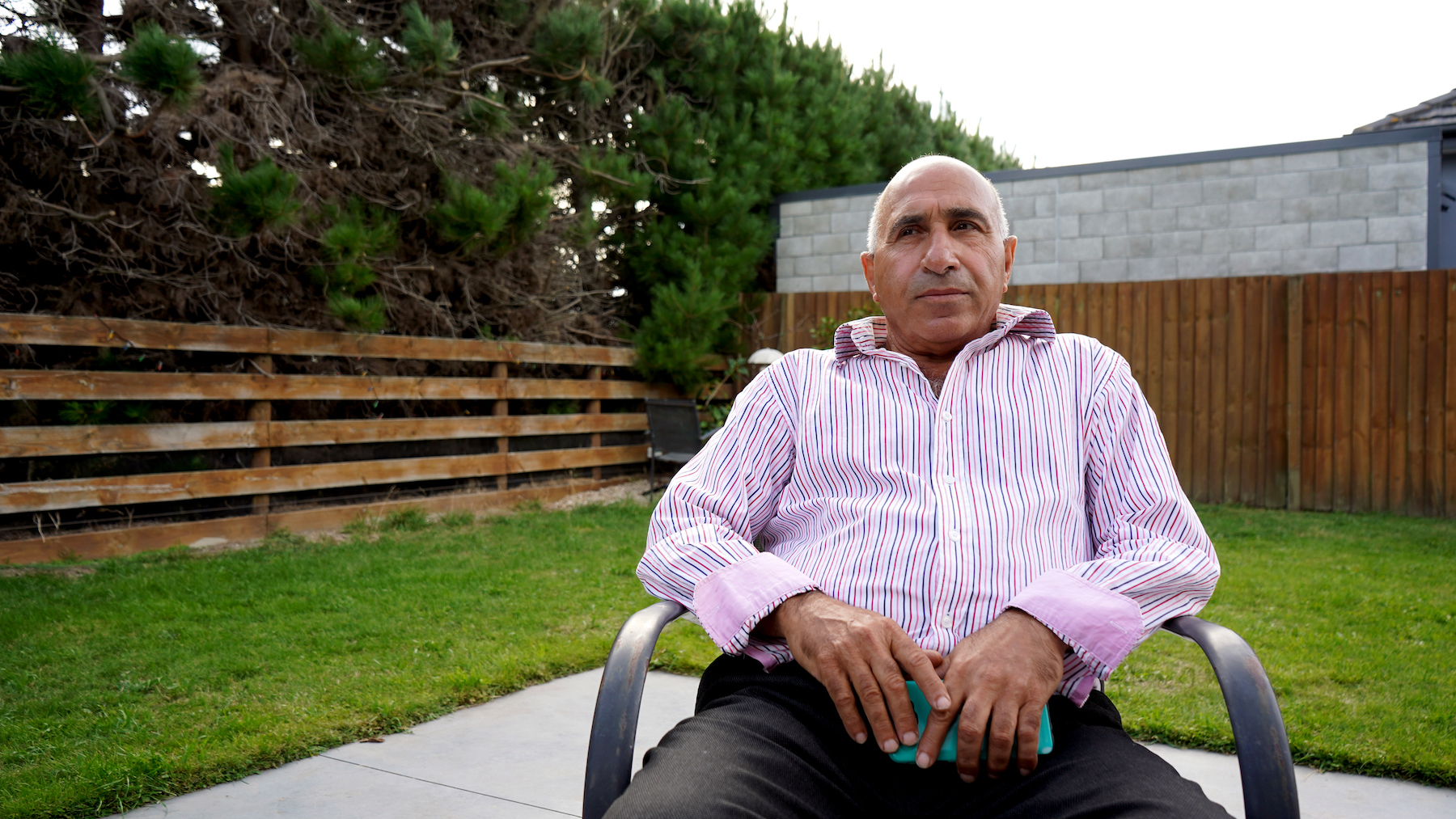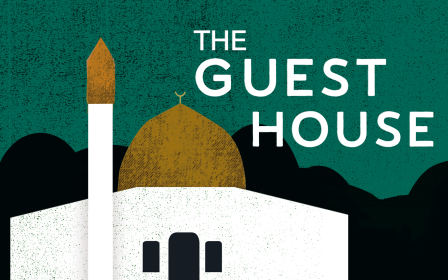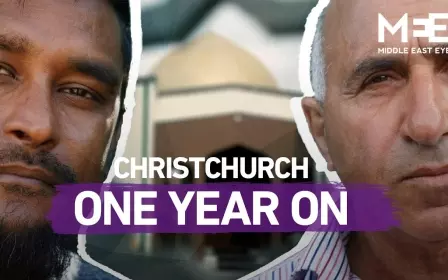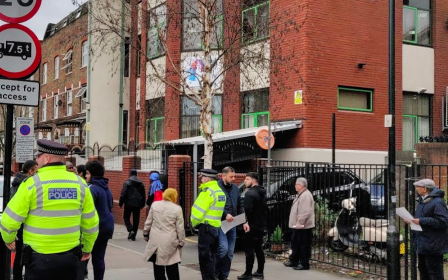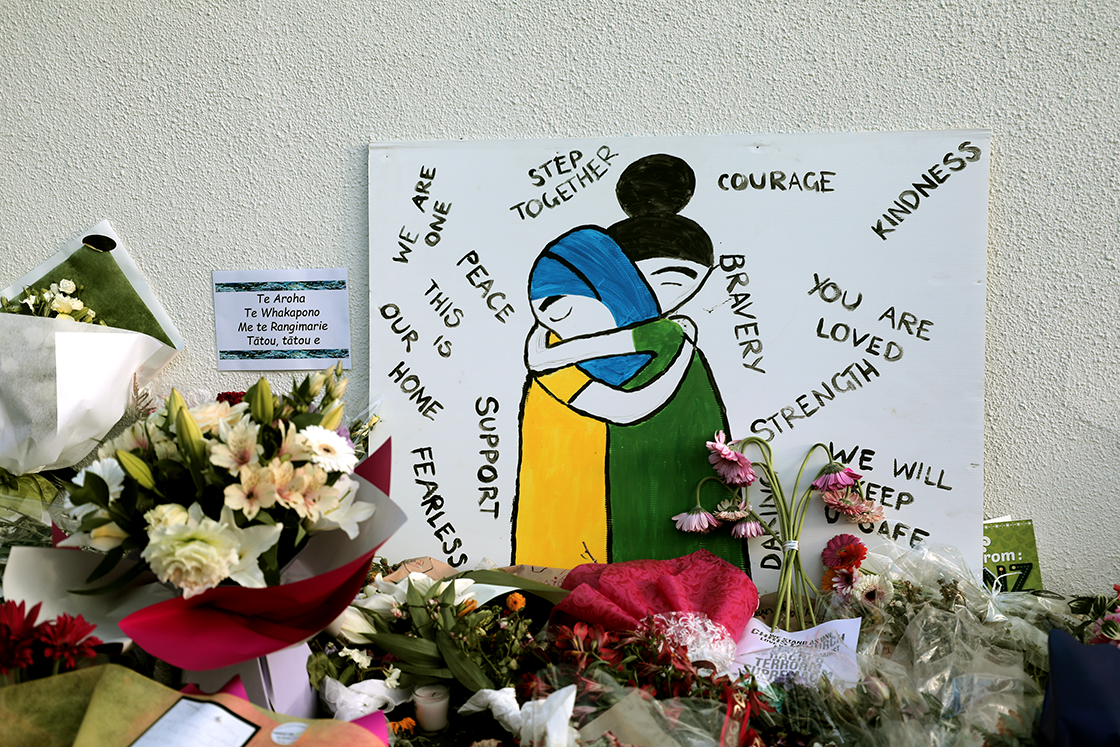
The open wounds of Christchurch
Sheikh Hasan Rubel wakes up in the morning feeling like himself again. The sun shines through the large window pane in his living room. His two-year-old daughter hovers in and out, playing with toys that are sprawled across the floor, bathed in the late summer glow.
It’s not until the afternoon that the pain returns.
“As the day progresses, and at night time is when I have most of my pain,” he said.
“And some days it’s really hard to move my legs because it feels like I’m in so much pain, I don’t want to move.”
In a few days time, Rubel would be returning to the operating room for surgery on his pelvis. A wide crack right down the middle was causing him excruciating pain, leaving him unable to walk for long distances, and always with the aid of a crutch by his side.
He’d spent eight weeks in and out of surgery last year, after being shot three times. Once in the pelvis. Once in the foot. And once in his lower intestines. His foot was mostly healed, but bullet fragments still lodged around his spine would take much longer.
The 35-year-old operations manager moved to New Zealand with his wife five years ago from Bangladesh, settling in Christchurch where he completed his masters and then found work. He was the sole-breadwinner of the family, but is now confined to his home, unable to work.
Without much of a distraction, he was forced to sit at home, alone with the memories of the day that altered the course of his life.
On 15 March last year, Rubel had taken an hour’s break from work to attend the Friday sermon at his local Al Noor Mosque. He arrived early and sat in the second row cross legged, listening to the imam.
Halfway through the sermon, he suddenly heard what sounded like fireworks coming from outside the mosque. Then it started getting louder, and closer. He saw flashes of light reflecting off the back wall of the mosque before him, blinking on and off. Then people started running.
“I saw people start running, so I tried to run. At that point I got shot [in my foot] from a long distance. That broke a couple of toes.”
He flung himself onto the far wall, before being crushed by the weight of others.
“There were many people, and I was on top of them. Some people are on top of me. That time I got shot another two times.”
Rubel’s eyes drift off in to the distance as the scenes replay themselves in his head. He often tried to shut them out, but they were never far away.
“Sometimes I try to close my eyes and try to imagine that it’s not real, but I have seen so many things. Those memories hurt me sometimes. Make me depressed. Make me scared of so many things.”
In the few times where he and his wife have left the house, sometimes to run errands or to the hospital for checkups, he was always on edge. If he heard a noise, it startled him. If he saw a car driving too quickly, he became certain there would be a crash.
Almost a year on from the attack, he felt like his life was stuck.
“In the past, I always thought: ‘Oh, I have to achieve this thing, I need to do this’, but nowadays I feel like: ‘What’s the point of life?’”
“A single incident can happen again that will destroy my life, change my life.”
New Zealand has ‘fundamentally changed’
Fifty one worshipers were killed on 15 March, between Al Noor Mosque and Linwood Islamic Centre just a 10 minute drive away. More than 40 were seriously injured.
A lone gunman armed with assault rifles and shotguns, dressed in camouflage gear, drove between both mosques during the Friday prayer, and opened fire indiscriminately on the people inside. He strapped a wearable camera to his helmet, and streamed the killings live on social media, where it was watched initially by 400 people live, then shared widely across the internet.
On one of his rifles, he painted the names of far-right shooters who had also targeted minority groups in other countries. A manifesto posted to the 8chan forum hours earlier outlined a desire to strike at the heart of a tiny Muslim community on the edge of the world, and send a message to the rest of it.
Later in the day, a 28-year-old Australian man, Brenton Tarrant, was arrested and charged with 51 counts of murder, and 40 counts of attempted murder. He pleaded not guilty to all charges, and will commence his trial in June.
It was the worst act of violence the country had witnessed since it’s colonial land wars, and one of the most devastating mass shootings in world history.
'A single incident can happen again that will destroy my life, change my life'
-Sheikh Hasan Rubel, Christchurch survivor
Prime Minister Jacinda Ardern, who garnered international praise for her response to the attack, attended a joint-prayer on Friday held between both affected mosques, to mark the anniversary.
“A year on, I believe New Zealand and its people have fundamentally changed. I can’t see how you could have an event like this and not,” Ardern said at the service.
“But the challenge for us will be ensuring that in our everyday actions - and in every opportunity where we see bullying, harassment, racism, discrimination - calling it out as a nation.”
A new lease on life
Hazem Abdul Kareem Mohammed is marking his first birthday today.
The soil scientist, and father of six, said he had faced his death at Al Noor Mosque one year ago, and had been born again.
He was sitting on a chair at the back of the congregation when the shooting began.
“I couldn’t get out because there were about twenty people in front of me. Twenty people on the other side,” Mohammed said.
“So what I did with myself is I dived, and I bent my legs, and I dived on to my tummy, and I pretended I was a dead soldier.”
Mohammed held his breath and kept his head to the floor as the shooter paced around the mosque, opening fire at anyone who moved.
One of the bullets hit his shoulder, missing his head by a single inch.
“But I didn't move either. If there was any pain, I just bear it.”
Instead, he continued to hold his breath, and began plotting how he would escape.
“I became a director of a short film in my head. I made a movie about how I would get out of this situation. Is Allah going to help me? Did my wife know I’d been trapped?”
After a few minutes, when he could no longer hear footsteps, Mohammed stood up slowly and walked down the long corridor leading to the front door of the mosque. He tried not to look down at the bodies of those who’d been killed.
In a daze and covered in his blood, he walked down the street, trying to hail passing cars by. Eventually a friend found him, and they carried an injured woman into the back of the car, before driving to the nearby Christchurch hospital.
When the final death toll had been confirmed, Mohammed realised he knew most of the victims.
“Because I’ve been here for a long time in Christchurch, from these 51 [people] I know personally 45 of them. I visit their families, you know, I know them,” he said.
“So I feel sad for these people who lost them. Their husbands or their wives.”
The Iraqi-born man moved to New Zealand in the 1970s with his wife, and lived in Christchurch for over 40 years. He helped build the small Muslim community from fruition.
When he attended prayers at Al Noor Mosque now, he could see the spaces of who was missing.
“These people had done nothing wrong. They just went to the mosque to practice their own religion.”
He spent most of his time at home now, with his family. In his garage, he analysed soil samples from the area and divided them into small samples in clear plastic bags, before sending them abroad for testing.
On some days, when his shoulder hurt too much, he asked his children to help. The doctors told him the pain may never go away.
“There are about more than a hundred fragments of the bullets still inside my shoulder. They can’t take it out because it would cause more damage to my muscles than benefit.”
He hoped that on the anniversary of the attack, the world could come together and reflect on the lessons that could be learned from the attack.
“It doesn’t matter what religion you practice, that’s your choice, that’s your freedom. We are Muslims, but we respect other religions. Let us live in peace and harmony.”
Lost in the red tape
Millions of dollars worth of donations flooded into the community in the days and weeks following the attack, from within the country and abroad.
The government set up an independent fund, The Christchurch Foundation, to speak with victims and distribute more than $12m in donations. After months of consultation, $7m was divided up between the families of the bereaved and survivors, with another $1.6m put aside to set up education funds for their children.
'It doesn’t matter what religion you practice, that’s your choice, that’s your freedom. We are Muslims, but we respect other religions. Let us live in peace and harmony'
-Hazim Mohammed, Christchurch survivor
Raf Manji, an advisor working with the foundation, held more than 160 meetings with members of the community to figure out how to best distribute the money, and to hear their grievances.
“We focused very much on the victims. So definitely the bereaved, the bullet-injured, as we called them, and then special funds for children and widows.”
He said there were previously issues with how the government had distributed financial and housing assistance to the victims and their families, and the extraordinary circumstances at hand were often held captive by bureaucracy.
“If you think about the community, there are a lot of temporary migrants here; international students, refugees. So everyone’s immigration status was quite uncertain or quite temporary. Now, to access government services, which everyone needed, you needed to be a resident.”
Many visa applications were fast tracked by the government, but not all of them. Some families found themselves waiting for months to be able to access vital assistance.
“The problem is, Cabinet looked at policy change, and it didn’t go through, so they ended up with a system where people would apply, be rejected, and then have to go through a ministerial appeal process.”
Manji said he knew at least one family that was still living in emergency housing a year after the attack.
In the aftermath of the attack, the New Zealand government banned the sale and ownership of semi-automatic rifles, offering a buyback option to those who owned the now blacklisted models.
It also launched a Royal Commission of Inquiry into the conduct of state services, from police to the country’s intelligence body - to investigate whether they took threats of far-right activity seriously, and if they could have prevented the attack altogether.
That commission was initially expected to report its findings by 10 December, but is now due on 30 April following an extension requested by those running it. It had so far received more than 1,100 public submissions, including several from Muslim community groups.
Middle East Eye propose une couverture et une analyse indépendantes et incomparables du Moyen-Orient, de l’Afrique du Nord et d’autres régions du monde. Pour en savoir plus sur la reprise de ce contenu et les frais qui s’appliquent, veuillez remplir ce formulaire [en anglais]. Pour en savoir plus sur MEE, cliquez ici [en anglais].


